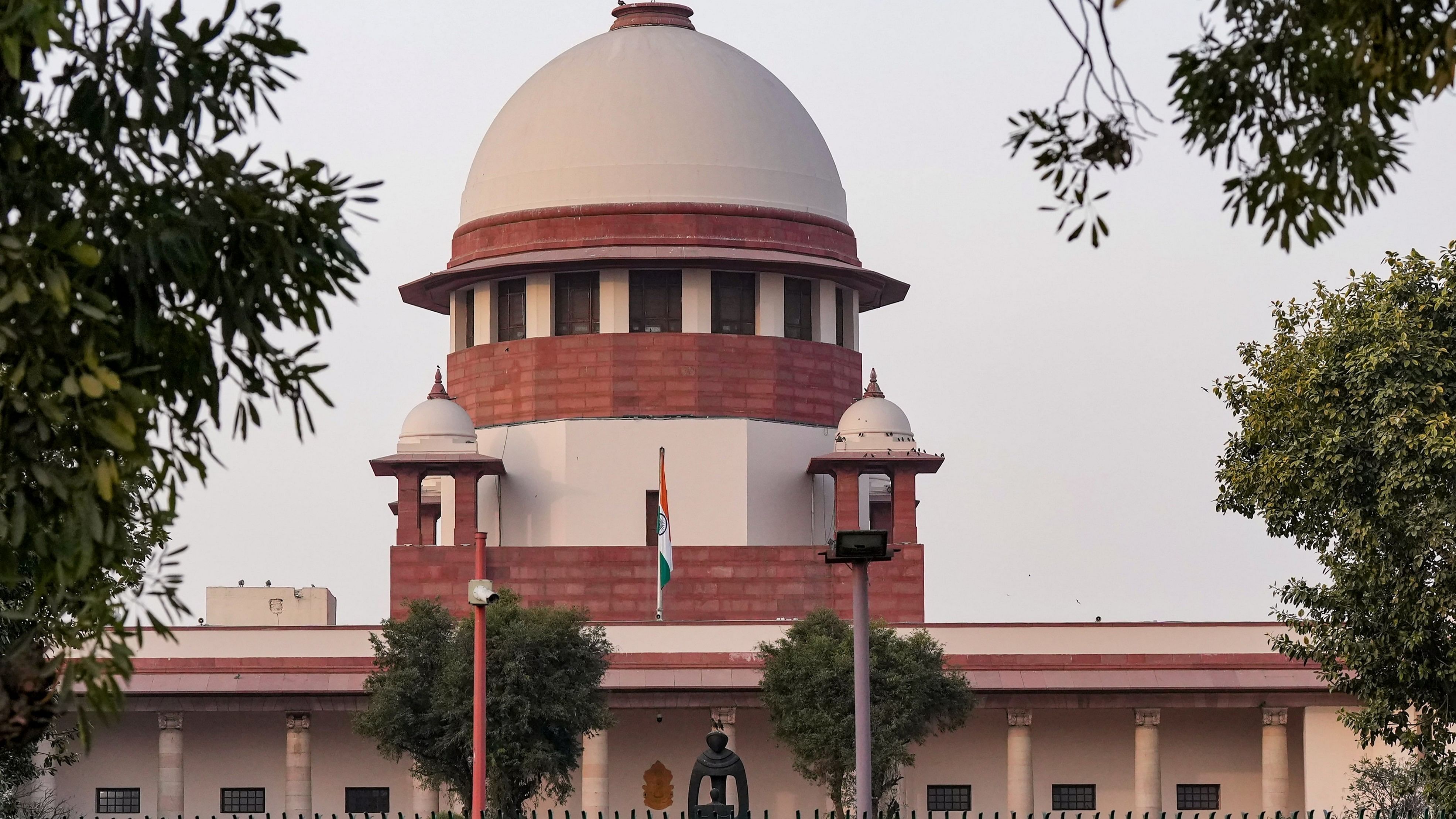
The Supreme Court of India.
Credit: PTI File Photo
New Delhi: The Supreme Court has said the complainant has no such mandatory right to insist that an application be decided in such a manner and he can't say he would not subject himself to cross-examination until his application for summoning other persons are decided by the trial court.
"The role of the complainant in a trial does not permit it to act as a public prosecutor on behalf of the State. The complainant and its counsel have a limited role in a sessions trial in a State case," a bench of Justices Vikram Nath and Prasanna B Varale said.
In a judgment on Friday, the bench also said the complicity of any person sought to be arrayed as an accused can be decided with or without conducting a cross-examination of the complainant and other prosecution witnesses, and there is no mandate to decide the application under Section 319 CrPC before cross-examination of other witnesses.
On an appeal filed by sole accused Asim Akhtar, the court set aside the Calcutta High Court's judgment which overturned acquittal of the appellant in a case related to kidnapping for the purpose of marriage since the complainant had declined to appear for cross-examination until her plea for summoning parents of the accused was decided.
The court upheld the order of acquittal and dismissal of application under Section 319 CrPC by the trial court.
Having relied upon the Constitution bench decision in Hardeep Singh Vs State of Punjab & Ors (2014), the High Court has remanded the matter to the trial court with the direction to first decide the application under Section 319 CrPC and thereafter proceed with the sessions trial expeditiously.
The apex court, however said, "The 2014 judgment does not take away the discretion of the trial court to wait for the cross examination to take place before deciding the application under Section 319 CrPC. It merely provides that consideration of such an application should not be a mini trial."
The bench said it is for the trial court to decide whether the application should be decided without waiting for the cross-examination to take place or to wait for it, which would depend upon the satisfaction of the trial court on the basis of the material placed on record.
It noted the High Court failed to take into consideration the complainant had repeatedly declined to appear for the cross-examination and kept on filing application to summon the parents of the accused in the case.
"Why the prosecution witnesses were shying from facing the cross-examination is not understood. Their only insistence was that the parents of the accused should be summoned and dragged into the trial and to somehow or the other keep the trial pending," the bench said.
